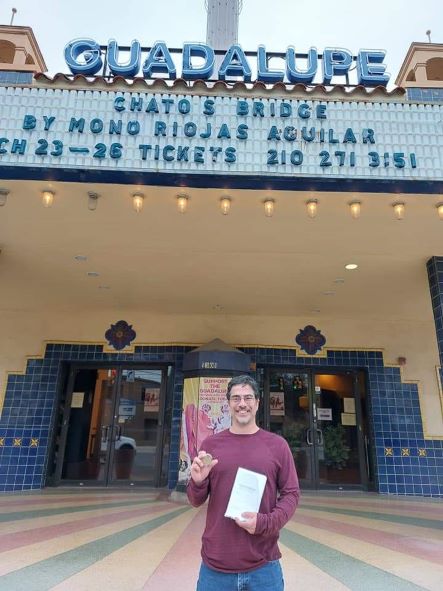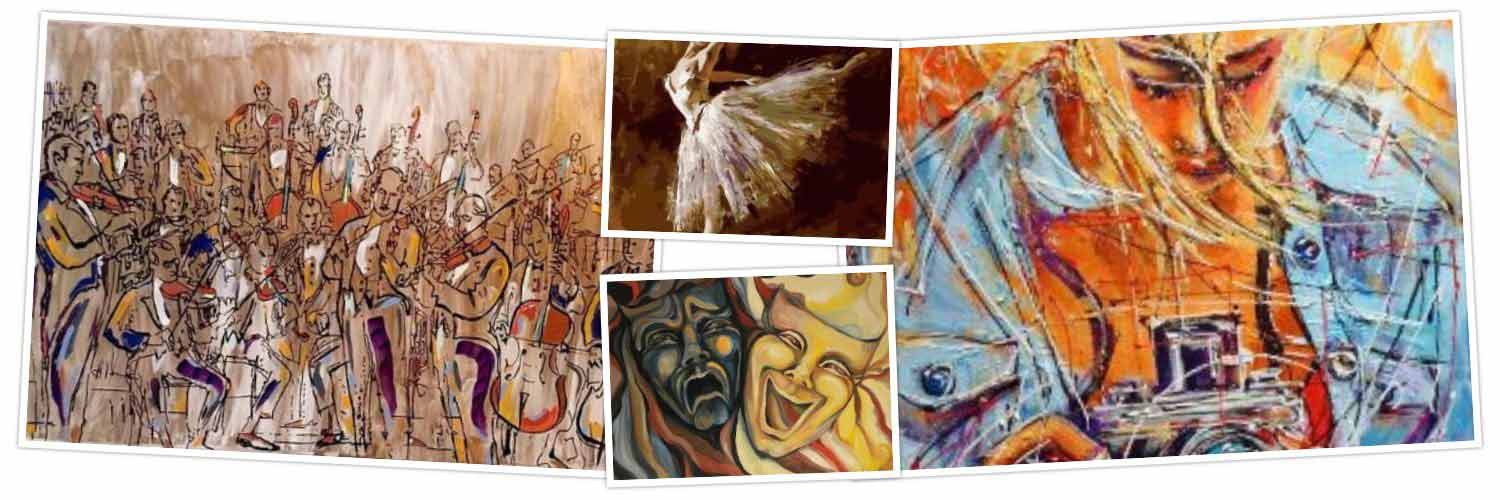“Chato’s Bridge” opens at the Guadalupe Theater
By JASMINA WELLINGHOFF, Editor
San Antonio College English professor, Mono Riojas Aguilar, wrote the play, “Chato’s Bridge” ten years ago and had a successful one-night show at the McAllister Auditorium. This play is now receiving a new production at the Guadalupe Cultural Arts Center this weekend.
“It started as a short story,” recalled Aguilar during a recent interview. “Most of my stories end up in a box in my garage because I don’t like any of them. But I keep them, just in case I change my mind in the future. This story was not going anywhere but the two main characters in it were catching my attention. So, I wrote one scene for the two characters. And that scene led to the next and the next, and before I knew it I had half of a play written”

The two characters, Chale and Simon, are about the same age as Aguilar and “they grew up in my neighborhood” which is the Westside of San Antonio,” said the playwright. The way I wrote it, the story is set in the present though the two men find themselves trapped in the past, in 1979, when they were little boys. At the time, they experienced a traumatic event that is still with them all those years later.
As adults, Chale and Simon are not exactly exemplary citizens. In fact, they are criminals, part of a gang but they cannot forget that long-ago incident when two of their pals we killed by the “Sprayheads.”
The play takes a while to reveal what happened on that fateful day, and we are not going to spoil the surprise. But suffice to say, that, due to a good deed they performed as ten-year-old boys, they have a couple of “guardian angels” watching over them as they seek revenge for the killing of their two friends.
“This play is really a revenge tragedy, just like ‘Hamlet’ is,” said Aguilar. “The moment we know it’s a revenge tragedy, we know what the end is going to be. We know that people will die and that the protagonists are going to die. In this play the protagonists choose to die. In order to have their revenge, they are willing to lose their lives.”
In addition to vengeance, the other two themes of the play are love and loyalty, noted the playwright.
“Loyalty is all over this play,” he pointed out, from the moment when two of the boys, Cato and Fofo, die on that bridge – which is renamed Cato’s Bridge after the tragedy that happened there – these men never forget what happened to their young friends. Also in their adult life, they receive protection from someone who is very grateful for what they had done years before.
The connections are not revealed until the final scene that takes place on Cato’s Bridge.
The story is not based on real events, but Aguilar quotes a Latin phrase (in English) that says: “If it’s not true, it should be true.”
“None of it happened but it could have happened,” he said. “What is real is the setting and locations, and all the characters have elements of some people in my life, friends, neighbors.
“I like good characters and I like good dialogue, and I don’t like stereotypes,” noted Aguilar. “The portrayal of Chicanos from the 80s that came from Los Angeles were very stereotypical. They have accents, they dress in a certain way; they are very one-dimensional. The people I know, are very well-rounded. This play is part of a trilogy. This play has two male leads but in the next one I wrote, Dolores, who is a councilwoman in this play, becomes the lead and she runs for the state senate. That one is titled ‘Ádelita.’ And there is a third book with a gay man as the lead.”
In the Guadalupe production, adult Chale and Simon are played by Isaac Gutierrez and Salvador Salcedo, respectively, while the main female character, Dolores, is portrayed by Ruby Raquel Ruiz. The play is directed by Georgette Lockwood, whom Aguilar highly praised.
“She is classically trained as a theater artist, so she is bringing a different perspective to the actors that they are not familiar with,” he said. “Many in the cast have never acted before. It’s wonderful watching her directing them and giving them advice. If every actor had Georgette’s dedication, all the productions would be successful.”
——————————————————————————————————————–
March 23-26; Guadalupe Cultural Arts Center, 1301 Guadalupe St., 78207; for tickets go to www.guadalupeculturalarts.org, 210-271-3151
